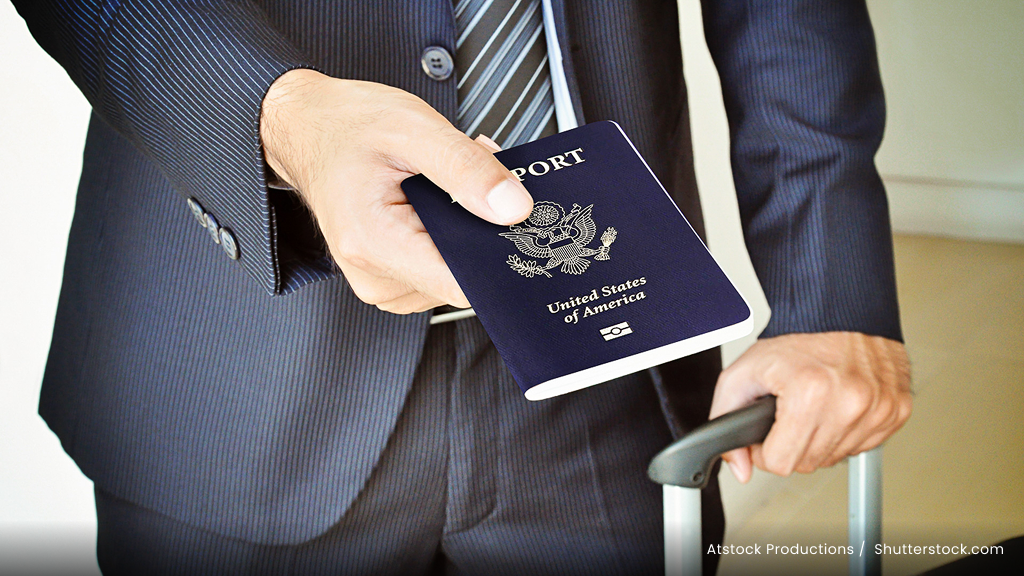How To Choose the Best Travel Card in 6 Steps

With so many different options to pick from, choosing the best travel credit card for you can be a daunting task. You might be torn between earning flexible travel points or focusing on credit cards that earn rewards from specific airline or hotel programs. Or you may be weighing whether paying an annual fee is worth it for money-saving benefits like free checked bags or airport lounge access.

400+ Credit Cards
Analyzed independently across 50+ data points in 30+ product categories

Reviewed
By a team of credit card experts with an average of 9+ years of experience

Trusted by
More than one million monthly readers seeking unbiased credit card guidance
CardCritics™ editorial team is dedicated to providing unbiased credit card reviews, advice and comprehensive comparisons. Our team of credit card experts uses rigorous data-driven methodologies to evaluate every card feature, fee structure and rewards program. In most instances, our experts are longtime members or holders of the very programs and cards they review, so they have firsthand experience maximizing them. We maintain complete editorial independence — our ratings and recommendations are never influenced by advertiser relationships or affiliate partnerships. You can learn more about our editorial standards, transparent review process and how we make money to understand how we help you make informed financial decisions.
It’s worth taking the time to find a card that suits your needs, because making the right choice can help you unlock rewards to fuel your next vacation and perks that can improve your travel experience.
These are the six questions you should ask yourself to guide your decision when choosing a travel credit card.
What Type of Rewards Do You Want To Earn?
This is arguably the most important question, because rewards are one of the main benefits of travel credit cards. You have several different options to choose from here, but they can be broadly sorted into three categories:
- Transferable points cards: These allow you to transfer rewards to partner airline and hotel programs, and typically also offer a way to redeem points through the issuer’s travel portal.
- Hotel or airline credit cards: Co-branded cards earn points in a specific airline or hotel loyalty program.
- Cash-back credit cards: You can redeem cash back for just about anything, including travel.
Transferable Points
Many of the most popular travel cards on the market, including American Express Platinum Card® (an advertising partner), Chase Sapphire Preferred® Card and Capital One Venture X Rewards Credit Card, earn transferable points. Flexibility is a huge benefit here, especially if you’re willing to learn about award charts and airline partnerships to make the most of your rewards.
Over the years, I’ve transferred my Chase Ultimate Rewards® points to United MileagePlus to book a Lufthansa first-class award ticket to India, and to British Airways to book domestic American Airlines award tickets. I’ve also used them to pay for car rentals and cash bookings through Chase Travel℠ at a competitive rate, thanks to my Chase Sapphire Reserve®.
One of the biggest benefits of transferable points like these is that they protect me from an individual airline devaluing its award chart. If United raises the prices of award tickets, I still have the option to transfer to other Star Alliance members like Air Canada or Singapore Airlines instead.
Airline Miles and Hotel Points
If your travel tends to be locked into a specific airline or hotel chain, you might do better with a co-branded card that offers specific perks with that company. You can expect to see benefits like free checked bags or annual free night certificates, which are useful if you know your travel plans will make it easy for you to use them.
Cash Back Rewards
While it can be tempting to think of cash-back cards as a different category than travel cards, earning cash to pay for your vacations gives you the ultimate flexibility. Some cash-back cards like the Bank of America® Premium Rewards® credit card even offer travel benefits like 2x points on travel and a statement credit for TSA PreCheck or Global Entry.
What Does Your Monthly Spending Look Like?
When choosing a travel rewards card, it’s important to shop with your head, not your heart. The Amex Platinum’s welcome offer: You may be eligible for as high as 175,000 Membership Rewards® Points after spending $12,000 in eligible purchases on your new Card in your first 6 months of Membership. Welcome offers vary and you may not be eligible for an offer. If you’re not going to be able to meet that spending requirement, then it’s not going to do any good for you. There’s no worse feeling than coming up just short of the spend you need to earn an intro bonus, so make sure you don’t bite off more than you can chew.
In addition to considering how much you spend in a given month, it’s also important to think about where you spend that money. If you’re frequently eating out, you’ll want to make sure that you have a card that earns bonus rewards on dining purchases, like the Sapphire Preferred Card. There are also cards with bonus categories for travel, groceries and plenty of other common expenses.
If your spending doesn’t fit neatly into a single category, consider a card that has a strong earning rate on all purchases, such as a 2% cash back card. Other options include the Capital One Venture Rewards Credit Card and Venture X Card, which each earn a base rate of 2 miles per dollar on purchases, or the Chase Freedom Unlimited®, which earns 1.5x.
How Do You Normally Travel?
The business traveler flying multiple times a month to the same three or four cities will have different needs than a family of four looking to take an international vacation over spring break. Step one is looking at your home airport and who flies there, to determine whether a co-branded airline card or a transferable points card makes more sense.
For example, my home airport is Miami (MIA), where American Airlines operates the overwhelming majority of domestic and international flights. So I need to make sure I have a credit card that gives me access to AA award tickets.
Some big airports like New York (JFK and EWR), Chicago (ORD) and Los Angeles (LAX) serve as hubs to multiple airlines, so residents of these cities can choose to commit to one program or retain flexibility.
It’s also important to consider your travel style. If you’re looking to score that aspirational international first-class award ticket, it makes sense to leverage a transferable points card to book that ticket through the cheapest program possible. Meanwhile, people primarily flying domestic economy tickets may get more value out of free checked bags from a co-branded card.
The same question applies to hotel rewards as well, but the difference is that most of the major hotel chains have at least one property to pick from in every major city. So even if you aren’t loyal to a specific airline, it’s much easier to choose one hotel chain with which to stack your rewards.
It’s also worth noting that transferring flexible points to hotel programs often represents a poor value compared to transferring them to airlines, so if you are looking for free hotel nights, it may be worth adding a co-branded hotel card. I currently receive two Marriott free night awards each year just for keeping my Marriott Bonvoy Boundless® Credit Card and Marriott Bonvoy Business® American Express® Card open.
How Much Are You Willing To Spend on an Annual Fee?
Once you’ve started to hone in on the type of card you want, you’ll still need to decide how much of an annual fee you’re willing to pay. Many “card families” have entry-level, mid-range and premium options to pick from. For example, Capital One offers the no-annual-fee Capital One VentureOne Rewards Credit Card, $95-annual-fee Venture Card and $395-annual-fee Venture X.
You’ll find a similar approach with many co-branded credit cards, such as the Chase United card family, which offers four different personal cards:
- United Gateway℠ Card: $0 annual fee
- United Explorer: $0 intro annual fee for the first year, then $150
- United Quest℠ Card: $350 annual fee
- United Club℠ Card: $695 annual fee
Do You Want Premium Travel Perks?
You shouldn’t just think about the cost of the annual fee in isolation — consider how much extra value in rewards and perks you’re getting for that extra cost.
Taking the Capital One Venture family as an example, the Venture X costs $300 more than the Venture every year, but it also comes with a $300 annual Capital One Travel credit, 10,000 Capital One miles every card anniversary (worth at least $100), and access to Capital One’s airport lounge network.
There’s no avoiding the upfront cost if you opt for the Venture X, but if you’re able to use the full travel credit and bonus miles each year, it’s easy to justify the high annual fee.
Do You Need Travel Insurance or Other Specific Benefits?
Do you have something on your shopping list that we haven’t covered yet? While many credit cards share a similar set of benefits (for instance, most premium travel rewards cards offer a Priority Pass lounge membership and a fee credit for TSA PreCheck or Global Entry), issuers are always looking for unique ways to stand out.
Many cards offer some form of travel insurance, which can include things like trip delay or cancellation coverage, lost or delayed bag insurance, and rental car insurance. When I was in Thailand almost 10 years ago, my flight home got cancelled because of a typhoon. I was upset at first, but that quickly faded when I got on the phone with Chase and found out that because I’d paid the taxes on the award ticket with my Sapphire Reserve, I was entitled to up to $500 in coverage for food and a hotel for the night.
In Bangkok, $500 goes a long way, so I spent my delay recovering in a suite at the St. Regis, with room service courtesy of Chase Sapphire travel insurance.
The information related to the Chase Sapphire Reserve®, United Gateway℠ Card, United Explorer, United Quest℠ Card, United Club℠ Card, Marriott Bonvoy Boundless® Credit Card and Marriott Bonvoy Business® American Express® was collected by CardCritics™ and has not been reviewed or provided by the issuer of this product/card. Product details may vary. Please see issuer website for current information. CardCritics™ does not receive a commission for this product.
Frequently Asked Questions About Choosing a Travel Credit Card
What should I look for when picking a travel credit card?
Ultimately, picking the right travel credit card for you starts with figuring out your goals, your travel style, what type of rewards you want to earn, and how much you’re willing to spend to get certain luxury travel benefits.
Which credit card is best for travel expenses?
One of the best cards for general travel purchases is the Chase Sapphire Preferred Card, which earns 5x points on travel booked through Chase Travel (excluding purchases that qualify for the annual hotel credit) and 2x points on other travel. Chase has a very broad definition of the category, and the card offers great travel insurance benefits as well.
Is getting a travel credit card worth it?
Using the right travel credit card can earn you rewards you can use to travel for a fraction of the cost. If you have at least a good credit score and are responsible with your finances, there’s value to be had. However, if you don’t travel more than once or twice a year, you may have trouble using all the benefits you earn.
Can I have more than one travel card?
As long as your credit score is high enough and you meet any card-specific eligibility criteria, nothing is stopping you from applying for multiple cards. It’s not uncommon for someone to want a combo, maybe a co-branded hotel card paired with a transferable points card for flights, or multiple cards under the same “family” to stack your points balance even higher.











